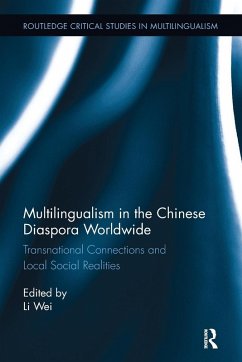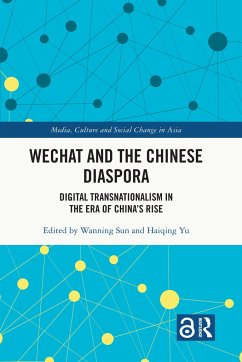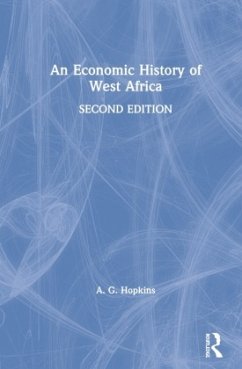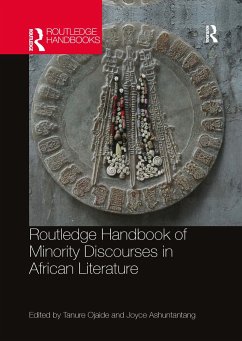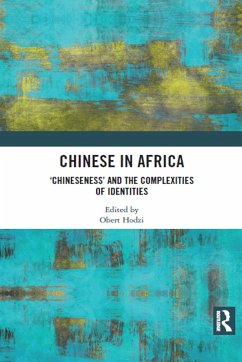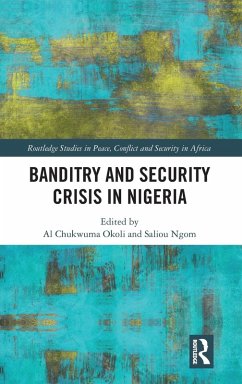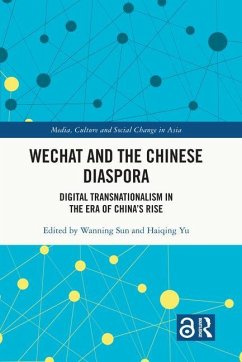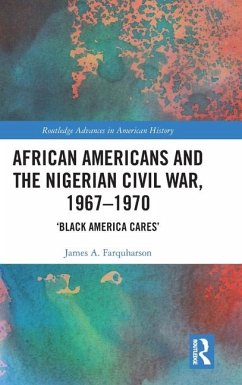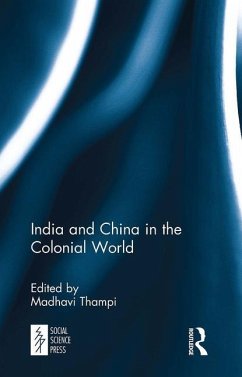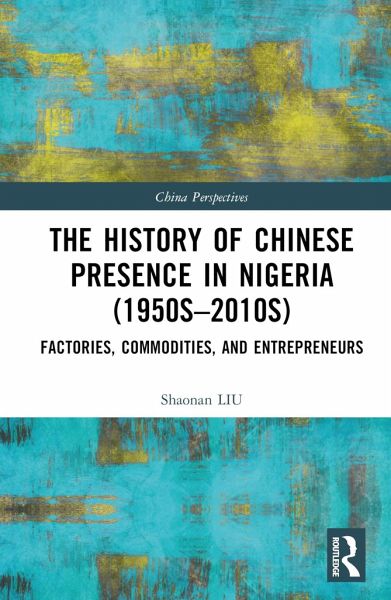
The History of Chinese Presence in Nigeria (1950s-2010s)
Factories, Commodities, and Entrepreneurs
Versandkostenfrei!
Versandfertig in 6-10 Tagen
170,99 €
inkl. MwSt.
Weitere Ausgaben:

PAYBACK Punkte
85 °P sammeln!
As the first book-length work on the history of Chinese presence in Nigeria, this book examines how Chinese migrants and the Nigerian state, workers, traders, and consumers interacted with and influenced one another from the mid twentieth century to the early twenty-first century.Based on a combination of archival sources and oral history interviews, this book argues that the significant Chinese presence in Nigeria-Chinese-owned factories, commodities, and entrepreneurs-is not as recent a phenomenon as it might appear. As early as the 1950s, an influential yet understudied group of Chinese ent...
As the first book-length work on the history of Chinese presence in Nigeria, this book examines how Chinese migrants and the Nigerian state, workers, traders, and consumers interacted with and influenced one another from the mid twentieth century to the early twenty-first century.
Based on a combination of archival sources and oral history interviews, this book argues that the significant Chinese presence in Nigeria-Chinese-owned factories, commodities, and entrepreneurs-is not as recent a phenomenon as it might appear. As early as the 1950s, an influential yet understudied group of Chinese entrepreneurs moved to Nigeria, set up factories and gradually came to dominate some of the country's key manufacturing industries such as textile and enamelware over subsequent decades. Such dominance remained unchallenged until the coming of mainland Chinese traders with their made-in-China goods in the late 1990s, dramatically changing the structure and influential pattern of theChinese in Nigeria. The research also emphasizes African (Nigerian) agency in shaping this Chinese presence, both economically and culturally.
This is a vital read for academics, researchers, and students of African History, African Studies, Chinese Studies, and those who are interested in contemporary issues relating to Africa-China relations.
Based on a combination of archival sources and oral history interviews, this book argues that the significant Chinese presence in Nigeria-Chinese-owned factories, commodities, and entrepreneurs-is not as recent a phenomenon as it might appear. As early as the 1950s, an influential yet understudied group of Chinese entrepreneurs moved to Nigeria, set up factories and gradually came to dominate some of the country's key manufacturing industries such as textile and enamelware over subsequent decades. Such dominance remained unchallenged until the coming of mainland Chinese traders with their made-in-China goods in the late 1990s, dramatically changing the structure and influential pattern of theChinese in Nigeria. The research also emphasizes African (Nigerian) agency in shaping this Chinese presence, both economically and culturally.
This is a vital read for academics, researchers, and students of African History, African Studies, Chinese Studies, and those who are interested in contemporary issues relating to Africa-China relations.




